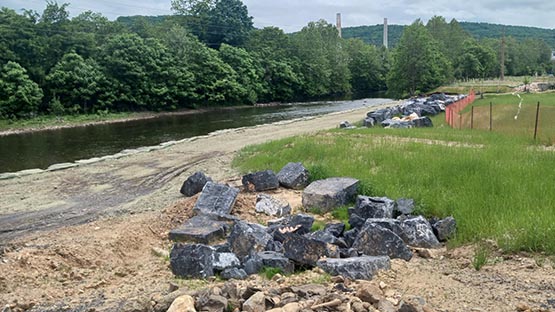
Sen. Mark Warner visited Virginia Tech on Sept. 22 to meet with researchers and executives to brainstorm the creation of a workforce pipeline.
Creating Helping Incentives to Produce Semiconductors (CHIPS) and Science for America Act will get the United States back into the semiconductor game by investing in and supporting the manufacture of semiconductors, as well as research, development and supply chain security.
Semiconductor manufacturers will need employees to make that dream a reality.
Warner visited the Virginia Tech Transportation Institute, according to a press release, and spoke with researchers and executives from the College of Engineering, the Virginia Tech Office of Research and Innovation and the Center for Economic and Community Engagement to brainstorm how to create a pipeline of students ready to fill in-demand research and development, as well as manufacturing jobs after graduation.
Chair of the Intelligence Committee, Warner worked in the technology sector before his political career in Virginia began. He praised the university for its work to unite the public and private sectors through research and industry in Blacksburg and at the Innovation Campus in Alexandria.
“Our nation must maintain international leadership in advancing technology,” Warner said. “The CHIPS and Science Act is a huge step forward. Virginia Tech is doing groundbreaking work in this area, and it’s exciting to learn more about opportunities to collaborate.”
Masoud Agah, a Bradley Department of Electrical and Computer Engineering (ECE) faculty member and Virginia Microelectronics Consortium Professor of Engineering, attended the CHIPS roundtable. Agah is developing a skin sensor to detect volatile organic compounds emitted from human skin for biomarker discovery and disease diagnoses.
Luke Lester, Roanoke Electric Steel Professor and ECE department head, according to the press release, noted the important role that semiconductor chips play in a variety of electrical and computer engineering components and research projects.
“Much of the electrical and computer engineering profession is based around making components smaller and more efficient,” Lester said. “Semiconductor chips can be found in vehicles, smartphones and medical devices and are also being used to develop improved technologies for data centers. Components that are ubiquitous and touch the lives of people every day.”
Four ECE faculty members were recently awarded a $1.5 million National Science Foundation grant to support transformative research that fuels progress in engineering applications with high societal impacts. The program is focusing this year on future semiconductor technologies.
Julia M. Ross, the Paul and Dorothea Torgersen Dean of Engineering at Virginia Tech, also attended the roundtable.
“Conversations like this will help us implement innovative research and cutting-edge curriculum that prepare our students for careers related to the CHIPS Act,” Ross said. “The legislation’s goal of creating manufacturing jobs, as well as expanded research and development, touches many of our students and faculty here at Virginia Tech, and we look forward to maximizing its positive impact.”










